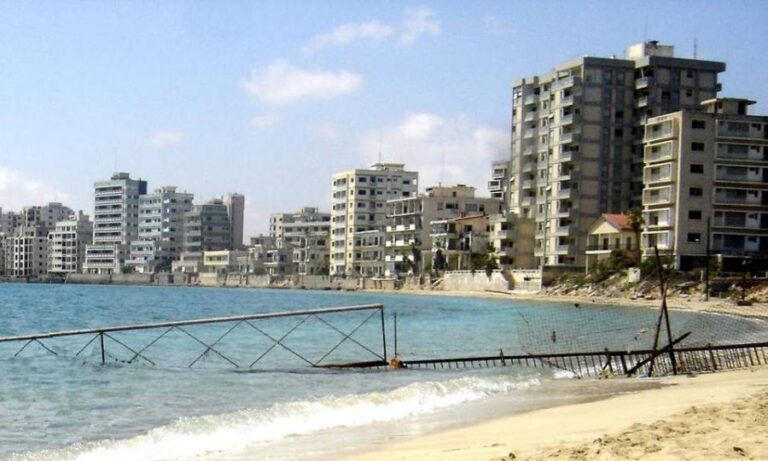The recent public debate in Famagusta Municipality has become a vital reality check on the state of Cyprus’ political system over time. The decision to invite Suleiman Ulutsai, the self-styled mayor of Famagusta and a Turkish Cypriot who denounces Turkish actions in Varosha, to an event condemning the Turkish occupation has important political implications. Ideally, this decision could have been a highly symbolic gesture, especially since Nicosia is trying to relaunch the dialogue on the Cyprus problem after six years of absence, in the middle of a series of faits accomplis involving Famagusta.
However, the reaction of certain parties (EDEK, ELAM, DIKO) and of a part of society which has always maintained a tough position on the Cyprus problem was predictable: “Don’t invite him!” Beyond this specific debate, it is crucial to consider the broader implications and functioning of the political system.
The ongoing debate reflects a political system that treats the Cyprus problem in a stereotypical manner, influencing decision-making, policy formulation and overall political discourse. The presence of a Turkish Cypriot at an anti-occupation event triggers various reactions – reinforcing EDEK’s dismissive stance, supporting ELAM’s right-wing agenda, and echoing DIKO’s discussions of a solution with specific content. Synagermos and AKEL, on the sidelines of this political competition, are also trying to capitalize politically.
The crux of the matter is that grandiose gestures, international involvement or prominent figures will not solve the underlying Cyprus problem. The system is stuck in a cycle of political immaturity, slogans and confrontation for the sake of confrontation. Meanwhile, in Famagusta, the political system is being overwhelmed by the fait accompli on the ground, led by Israeli businessmen selling Greek Cypriot properties in the occupied territories.
The resumption of negotiations faces challenges due to inherent contradictions within the ruling coalition, particularly with the EPP opposing the unacceptable status quo of the occupation. The future of the coalition could be uncertain and the evolution of the Cyprus problem could have an impact on DIKO’s position.
It is obvious that the current political system is not working effectively. To bring about meaningful change, active citizens must come together and create unwavering agreement on how to resolve the Cyprus issue and reshape the political landscape accordingly.
(This editorial has been translated from its Greek original)


